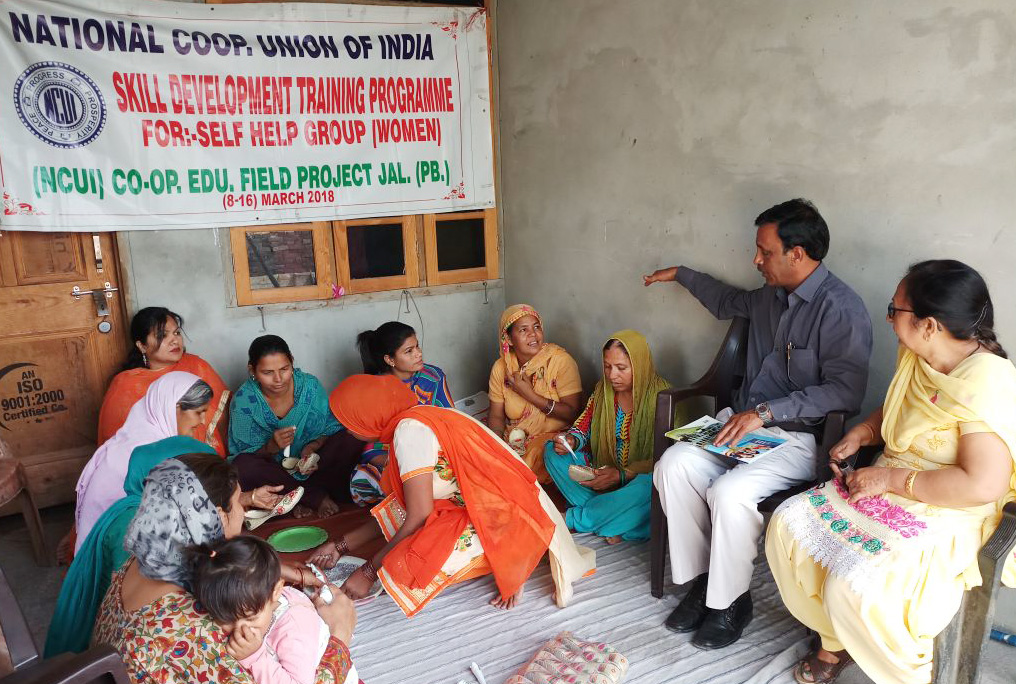Some of the Field Projects of NCUI are doing well by igniting the cooperative movement at the grassroots level. And the one of the projects being executed in Punjab with the help of Japanese Janjanchu could easily be cited as an example.
The project in Punjab has funded two self-help groups and hand-held them through producing Namkeen, football, Shoe designing, Pickle and may more things. The quality of product is high and people are eager to buy SHGs products.
There are about 64 SHGs with more than 800 women active in them.
The products are being marketed by NCUI under its own name. NCUI Chief Executive N Satyanarayan says ”since the products are being promoted, tested and showcased by us what is the harm in marketing them under our banner”.
The products got a major boost when the Punjab govt issued a circular to its departments to buy products being marketed by NCUI. “Such response from the govt goes a long way in boosting our morale”, said Field Project officer
Explaining the difference between cooperative run enterprises and privately run ventures Satyanarayan said, “Whatever one my say the general public still have more confidence in a cooperative product compared to privately produced products. They know profit is not our driving point”, he added.
Satyanarayan was trying to explain the fabulous response cooperative products are getting in the market.
In a telephonic chat with this correspondent Lamba informed, “We are also giving opportunity to these women to showcase their products or sell them through exhibition or stall”
Readers would recall that there are more than 45 NCUI’s Field Projects currently working in the country. More than 150 staff members are employed. Though they have complain of step-motherly treatment by the NCUI on issues of regularization of their cadre once in a while, some of them are indeed doing good job.
According to an estimate, nearly 2 lakh Self Help Groups are active across different fields in the country helping the poor in society. Women who mostly run and work in these organizations manage to earn fairly substantial monthly incomes.
